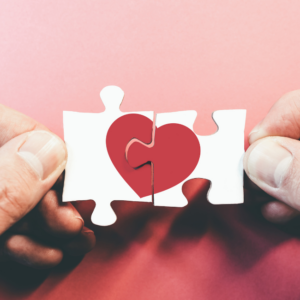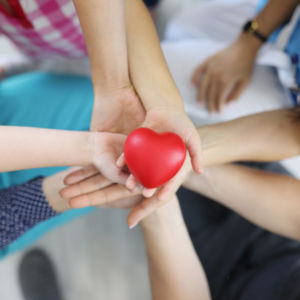From Donated Eggs to Baby : A Timeline for Donors and Intended Parents
Embarking on the journey of egg donation is a significant and life-changing decision for both donors and intended parents. Understanding the timeline of this process will help set expectations and ensure a smooth and rewarding experience. In this article, we’ll outline the step-by-step timeline for egg donation, providing a comprehensive guide from the initial inquiry to post-retrieval follow-up. Whether you’re a potential donor curious about what to expect or intended parents preparing for the next steps, this timeline will offer clarity and insight into the intricate process of egg donation. Let’s delve into each phase, shedding light on the medical, legal, and emotional milestones that pave the way for creating new beginnings and fulfilling dreams of parenthood.
1. Initial Inquiry and Donor Application
Contact Egg Donation Agency: The prospective donor contacts an egg donation agency or fertility clinic.
Initial Application: The prospective egg donor fills out an initial application form, providing basic personal, educational background, and medical information.
Pre-Screening Interview: One of TLC’s coordinators will conduct a phone or video interview to discuss the egg donor’s background, reasons for donating, and to explain the process in more detail.
2. Match Initiation, Screening & Evaluation (First 1-6 weeks of Match with a Donor)
Profile Review: Once a couple decides they are ready to move forward with an egg donor, intended parents will begin the process of selecting their egg donor by reviewing donor profiles and selecting a donor.
Matching: Once intended parents find a donor that fits their criteria, the donor confirms the match. The time for this step can vary widely, depending on the preferences and criteria of the intended parents.
Medical Screening: During this phase of the egg donation timeline, the prospective egg donor will undergo a comprehensive medical evaluation including physical exam, pelvic ultrasound, blood tests, and infectious disease screening.
Psychological Evaluation: The egg donor will also submit to a psychological assessment to ensure the donor is emotionally prepared for the process.
Genetic Screening: For full transparency, an egg donor will also complete genetic testing to check for hereditary diseases and conditions.
Approval: If all screenings are passed, the donor is approved to move forward with the legal agreement for the donation cycle.
3. Legal Process (Weeks 7-9 of Match)
Legal Consultation: Once a match is made, both the egg donor and the intended parents have separate legal consultations to review the egg donation agreement.
Contract Signing: Next, legal contracts are signed by all parties, outlining rights, responsibilities, and financial compensation.
4. Cycle Synchronization (Weeks 10-11 of Match)
Tentative Calendar Issued: Upon legal clearance being executed, the clinic will discuss potential cycle dates with the donor and provide a tentative calendar.
Birth Control Pills: In addition to the tentative calendar, the donor may donor start taking birth control pills to synchronize her menstrual cycle to ensure the timing stays on track.
Baseline Ultrasound and Blood Tests: To confirm medication start, a baseline visit local to the donor is completed to ensure the donor is ready to start stimulation.
5. Ovarian Stimulation (Weeks 12-14 of Match)
Stimulation Medications: At this point, the egg donor is able to begin daily hormone injections to stimulate the ovaries to produce multiple eggs.
Monitoring: The egg donor will make frequent visits to the clinic and or local monitoring clinic for blood tests and ultrasounds to monitor the development of the follicles.
Trigger Shot: Once the donor’s body is prepared for egg retrieval, she will receive an injection of hCG or another medication in preparation for retrieval.
6. Egg Retrieval (Week 15 of Match)
Procedure: The egg retrieval is scheduled 34-36 hours after the trigger shot. The egg donor undergoes a minor, noninvasive surgical procedure under twilight sedation to retrieve the eggs.
Recovery: The egg donor is monitored for a short period post-procedure and advised to rest for the remainder of the day.
7. Post-Retrieval (Week 15-17 of Match)
Possible Follow-Up Appointment: Some clinics may offer a follow-up visit to ensure the donor’s recovery is going well.
Compensation: The donor receives the agreed-upon compensation within 5 business of the egg retrieval taking place.
Future Cycles: If interested, the donor may choose to donate again, typically after a waiting period of a few months.
The entire egg donation process from match to post-retrieval typically takes about 3-4 months. This timeline can vary based on individual circumstances and the specific protocols of an egg donation agency or fertility clinic.
Navigating the egg donation process is a multifaceted journey that requires careful planning, dedication, and emotional resilience from both egg donors and intended parents. By understanding the detailed timeline—from initial inquiry and rigorous screening to legal formalities, medical procedures, and post-retrieval recovery—donors and intended parents can approach each stage with confidence and preparedness. This comprehensive timeline not only demystifies the process but also underscores the collaborative effort required to bring new life into the world. As you embark on this remarkable path, remember that each step brings you closer to achieving your dreams of building or helping to build a family. With clear expectations and informed guidance, the egg donation process can be a fulfilling and transformative experience for all involved.




